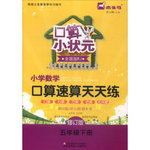题目内容
author Daniel Pink in his new book, Drive: The Surprising Truth About What Motivates Us. "Pay for
performance is supposed to be a folk tale," he says.
Daniel argues that, if employees receive a basic level of payment, three other factors matter more than
money: a sense of independence, of mastery over one's labor, and of serving a purpose larger than oneself.
For example, in 2008 at the offices of Best Buy's Richfield, salaried workers there were allowed to organize
their own work day, putting in only as many hours as they felt necessary to get their jobs done. Productivity
increased by 35% according to The Harvard Business Review.
But the managers at Goldman Sachs aren't exactly making some efforts to adjust. Like others on Wall
Street, the banking giant argues that fat bonuses (extra rewards) are essential to make its numbers. "That's
exactly the attitude that leads to the recent financial crisis in the United States," responds Daniel, "as managers
always focus on short-term rewards that encourage cheating, shortcuts, and dishonest behavior."
Moreover, the 45-year-old author and former Al Gore speechwriter refers to social-science experiments
and experiences at such workplaces as Google and 3M. In one 2005 experiment he describes, economists
working for the Federal Reserve Bank of Boston tested the power of incentives (激励) by offering cash
rewards to those who did wellin games that included reciting a series of numbers and throwing tennis balls
at a target. The researchers' finding: Over and over, higher incentives led to worse performance-and those
given the highest incentives did the poorest job.
From this and other cases, Daniel draws a conclusion that monetary incentives remove the element of
play and creativity, transforming "an interesting task into a dull one." It's even possible, he adds, for oversized
rewards to have dangerous side effects, like those of a drug dependency in which an addicted requires ever
larger amounts. He refers to scientific testing that shows the promise of cash rewards increase a chemical in
the brain similar to that brought on by cocaine or nicotine.
Daniel, however, is also aware that his company examples-no GE, no IBM, no Microsoft-hardly represent
the commanding heights of the economy. But he thinks his approach will catch on, even in the biggest
companies. "Managers tend to be realistic, and in time they will respond," he says.
B. all workers are not driven by money
C. money plays a key role in management
D. pay has nothing to do with workplaces
B. considerate
C. short-sighted
D. ridiculous
B. big rewards bring about dangerous side effect
C. nicotine and money bring the same chemical
D workers do not need the incentives of money at all
B. realistic managers will first consider Daniel's approach
C. Daniel's approach meets the demand of economic crisis
D. GE, IBM and Microsoft will join in Daniel's approach next

 口算小状元口算速算天天练系列答案
口算小状元口算速算天天练系列答案
| |||||||||||||||||||||||||||||||||||||||||||||||||||||||||||
| |||||||||||||||||||||||||||||||||||||||||||||||||||||||||||